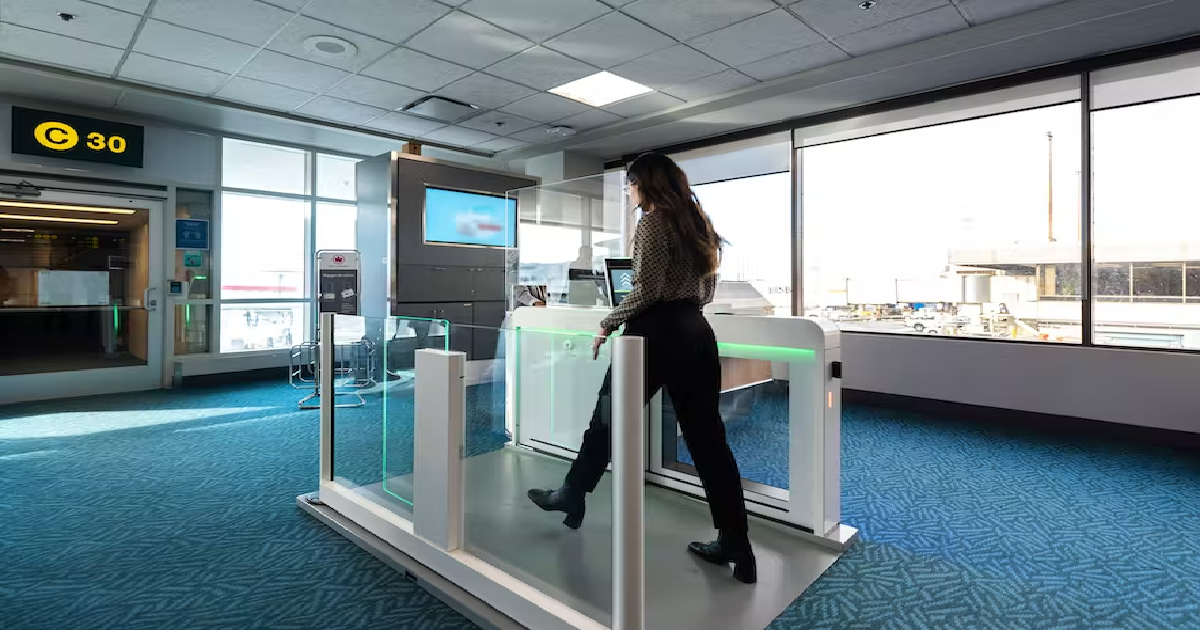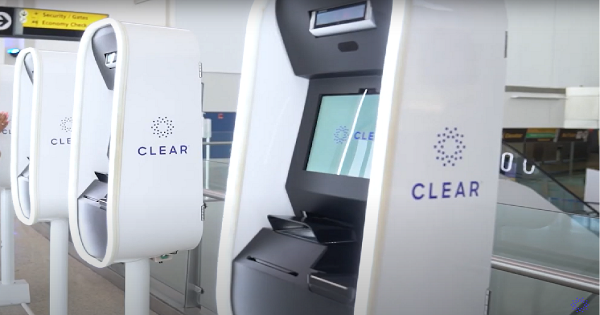Air Canada has launched a trial of biometric boarding using facial recognition.
The trial of what Air Canada calls ‘the digital identification option’ is now in action for some passengers on some flights from Vancouver International Airport to Winnipeg.
It’s also in use for passengers entering the Air Canada Café – a grab-and-go lounge – at Toronto Pearson International Airport.
Many airlines around the world already use facial recognition for boarding and more but this is the first trial in Canada.
Like the other places the facial recognition system means that the passenger’s face effectively becomes their boarding pass and ID.
So instead of showing those documents at boarding, their facial biometrics are checked by an egate and compared to the stored biometrics.
The airline plans to expand the biometric trial to other Canadian airports and Maple Leaf Lounges as part of its trial.
It is almost certainly the start of more widespread use of facial recognition at Canada’s airports, including check-in and bag drop.
In August 2022, Toronto, Montreal and Calgary joined together to buy and implement over 700 biometric kiosks and egates. All three airports are planning to start installing the self-service kiosks and egates early in 2023.
More about facial recogntion
How it works
Air Canada is contacting eligible passengers with instructions on ‘how to create their digital faceprint’ prior to arriving at the airport. They will have to use the Air Canada app to upload their facial biometrics,
Air Canada has released a video showing how its biometric system works.
Optional … for how long?
Air Canada says that passengers don’t have to join in the trial.
If they don’t want to take part then they can use the existing system by presenting their boarding pass and government-issued photo ID for manual ID check and processing.
Passengers can also continue scanning their boarding passes as they do now to enter the Air Canada Café at Toronto Pearson.
Craig Landry, Executive Vice President and Chief Operations Officer at Air Canada:
“Many of our customers already utilize digital credentials to simplify their daily activities such as unlocking mobile phones, entering workplaces, verifying identification during financial transactions and more.
“We are very excited to now take a leadership position in Canada and test digital identification using facial recognition technology to validate customer identification quickly, securely and accurately at select airport touchpoints.
“Participation in digital identification is voluntary. Customers choosing to use digital identification will benefit from a simplified and seamless process at the gate and when entering our Maple Leaf Lounges.”
Privacy
Air Canada says the biometric data is encrypted and stored only on the passenger’s mobile phone.
Passengers must provide additional consent for the data to be used day-of travel and will only be retained for up to 36 hours subject to Air Canada’s privacy and security standards.
The airline says it is a strictly optional, consent-based Air Canada program. It is not related to any government-sponsored program like NEXUS, Global Entry or US CBP Mobile Passport Control (MPC).
But the Minister of Transport – Government of Canada has a statement included in Air Canada’s press release.
Honourable Omar Alghabra, Minister of Transport – Government of Canada:
“Our government and Canadian airlines and airports are eager to move forward with innovative solutions and technologies to modernize the traveller journey in airports across the country, which would enable a more seamless and efficient air transportation system.
“Air Canada’s pilot project will speed up processes at YVR, and other airports where it’s established, while respecting robust privacy measures and security standards.
“This project has great potential in making gate boarding easier and faster for Canadian passengers, while maintaining strong safety measures.”
N.B. Image credit: Air Canada







